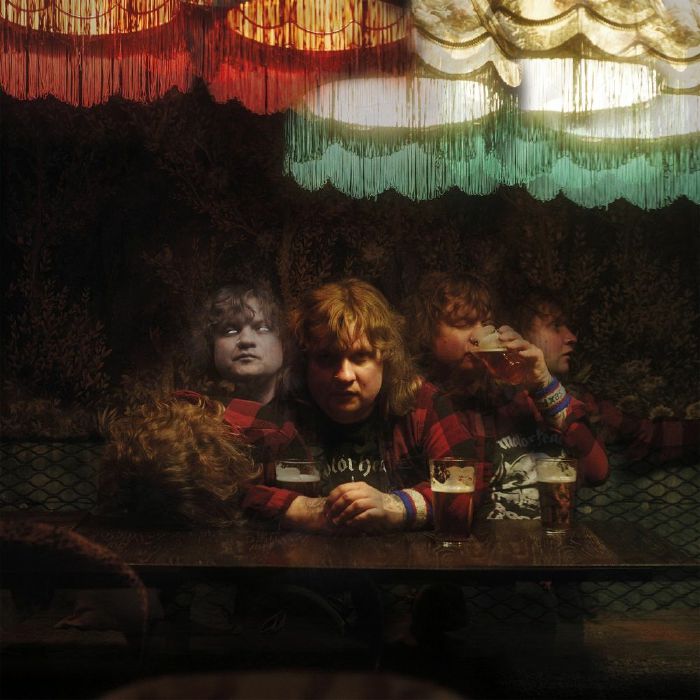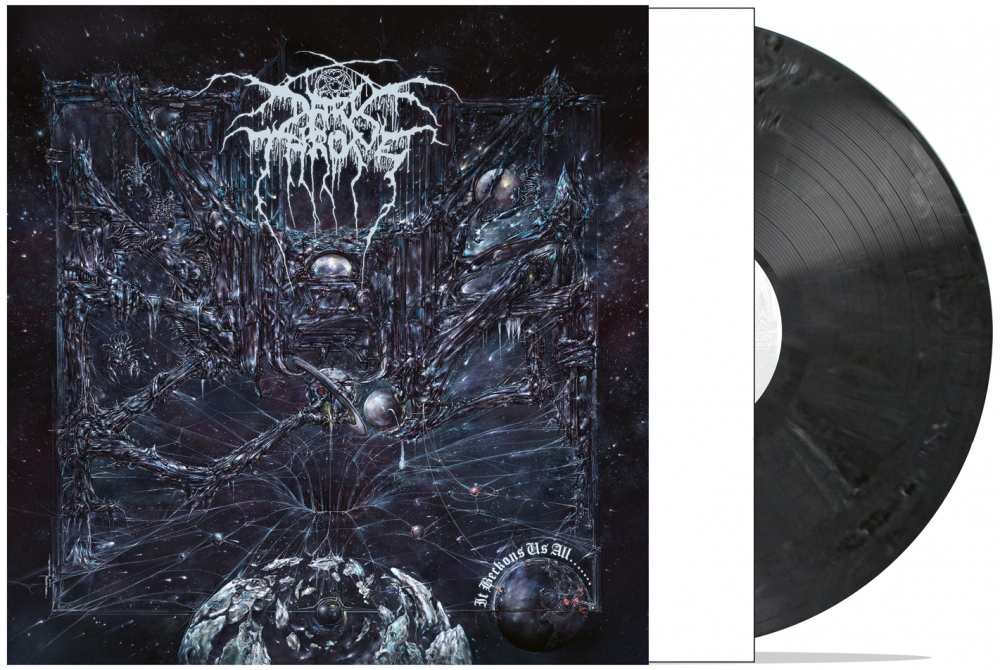When viewing Tovarish for the first time, you’d be forgiven for thinking they had crawled from the darkest Gulag that Russia has to offer rather than Providence, Rhode Island. Everything from the name (a form of address used in Soviet Russia meaning ‘comrade’) to the unutterably bleak artwork that adorns the record, points to music for the unbalanced mind, fomented in torment and shot through with a nihilistic strain that threatens to blot out even the strongest sunlight. A band who augment their neurotic, sludgy guitars with eerie ambient passages and stuttering electronica, not to mention screams that will haunt your very soul, Tovarish are a unique, challenging act whose artistic exploration of the outer reaches of heavy music places them alongside the likes of Asva and Khanate – rare company indeed.
With Tovarish it is better to leave your expectations at the door. A band dedicated to their craft, they excel at the unexpected and they are not afraid to take time to bring their music to the point. Opening track ‘soyuz’, for example’ is the soundtrack to an as-yet un-filmed horror movie, all skin-crawling atmospherics and heavy breathing. It is utterly unnerving and showcases the band’s ability to tap into the subconscious and infiltrate the listener’s darkest, deepest fears. At six minutes it is a lengthy and horrific track and it almost comes as a relief when ‘land of coffins’ emerges from whatever dank cellar in which it was kept bearing white hot guitar noise. However, it’s not an easy transition and the vocals remain inhuman, guttural growls and formless moans that shake the listener to their very core. Best experienced at excruciating volume, layers of feedback scold and seethe over slow-motion electronic beats, the effect of which is to leave the listener alone and scared, quaking in the darkness. ‘Throne of bayonets’ is no less intimidating. With hints of melody drawn from synth strings, echoing percussion and reverb drenched growls, there are rays of light buried at the track’s centre, as if the band can only bear to extinguish all hope for so long, but even so the glimpses of a lighter touch only serve to make the remorseless bleakness all the more affecting. ‘Order 227’ is the first track that takes the band in a direction more commonly associated with musical norms, the result being a harsh, industrial piece that is more Terminator than torture house. Despite the howling feedback, it is the martial beat that draws the attention first and foremost, perhaps because it offers form where previously form was illusory, but even so the track remains a jolting assault on the senses that does much to tear the humanity from the music leaving an unblinking machine facing off against the listener. ‘Whisper campaign’ (featuring guest vocals from Yoshiko Ohara) is refreshingly different, recalling the eerie gothic neo-classicism of Elliot Goldenthal (Alien 3). It is an astonishing centre point to the album and Yoshiko’s harrowing vocals are delivered with just the right balance of melody and arcane terror. It places Tovarish on a higher lane than even their previously impressive work suggested.
Returning to the molten riffs of old, ‘Call of the Kursk’ is a blistering piece that tears at and savages its victim, leaving the listener scarred and bloodied as the track becomes increasingly agitated. Rather more ambient in nature, ‘Ursa Major’ is a subtle, haunting piece of music that provides the perfect counterpoint to the savagery found elsewhere. An oasis of calm in the midst of all the horror, it slowly devolves into blackness and ‘Dyatlov pass’ emerges. Horrifying yet mercifully brief, it reduces the listener to state of palpable terror only for ‘declines in empathy’ to prove even less accommodating. The music of a person on the terminal edge of a psychotic breakdown, it takes the listener along paths rarely trod. The album ends with ‘radiation sickness’, a ghastly piece of music that drags the listener to the vomit-soaked wards inhabited by radiation damaged soldiers. It is both horrifying and impressively evocative and it closes the album in a manner that is utterly unforgettable.
Is it possible to like music like that of Tovarish? It’s a difficult question to answer for the music the band make is not music in the conventional sense. There is little in the way of concession towards the popular tropes one expects in modern music. There are no hooks here, no heavy choruses, and I think it is not out of line to suggest that Tovarish’s mode of composition has more in common with that of the minimalist neo-classical composers. The pieces ebb and flow, there is order in the chaos when one chooses to look for it and there is a sense that the album is a journey into the darkest recesses of the Nevada desert where entire stretches still lie abandoned in the wake of US atomic testing. That Tovarish is for a niche audience should, by now, be obvious. This is challenging and immeasurably dark music for the fervent few, but if you do admire the work of bands like Earth, Sunn 0))), Asva and Khanate, then Tovarish are definitely the band for you. A dark, unnerving masterpiece, Tovarish have outdone themselves with ‘this terrible burden’.











Leave a Reply